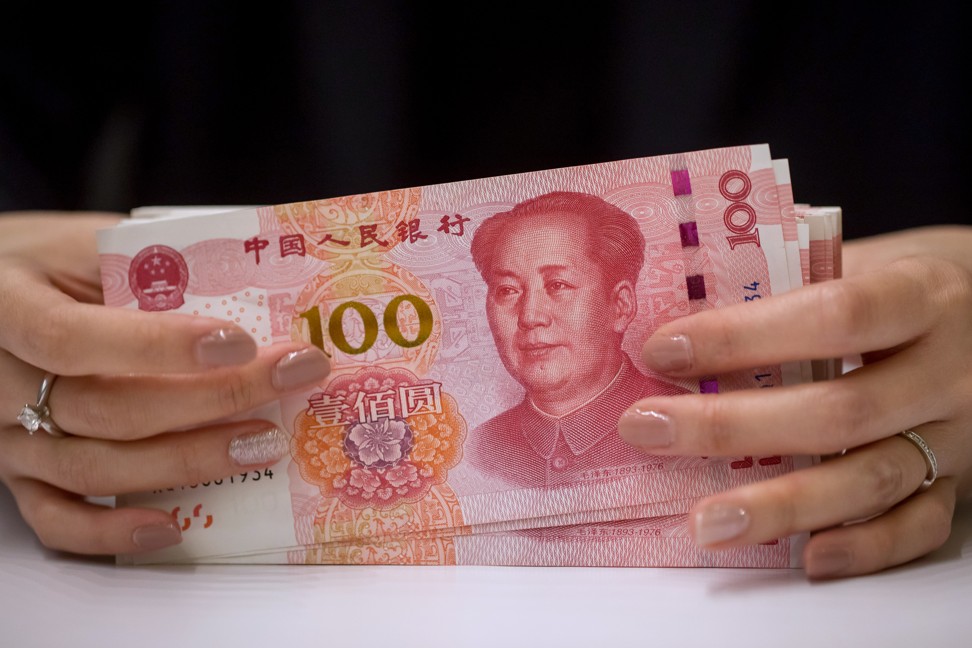
Beijing’s P2P owners and senior executives hit with travel ban as China cracks down on online lending
- Chaoyang district posts notice on social media account banning staff from peer-to-peer lending platforms from leaving China’s capital city without approval
- Post later deleted, but highlights China’s willingness to clean up the sector after the rapid development of often risky online lending
Owners and senior executives of peer-to-peer lending platforms in the Chaoyang district of Beijing appear to have been asked not to leave China’s capital city pending an investigation into their business practices, according to the district’s Internet Finance Association.
The notice, published on the association’s official social media account on Thursday, requires “senior managers” and controllers of peer-to-peer (P2P) platforms registered in Chaoyang district not to leave Beijing without written approval from the district’s Financial Service Office until the end of May. The post was later deleted without an explanation.
An industry insider, who declined to be named, said the association, which does not have the legal authority to restrict travel, may have crossed the line in making such an order.
“It’s also very hard to implement the ban,” the insider said.
I just saw the notice today. We were under a three-day investigation last week, the result hasn’t come out yet but the investigators have left. Our company has returned to normal operations now.
The district’s Financial Service Office and Internet Finance Association did not respond to repeated calls and emails requesting comment.
“I just saw the notice today. We were under a three-day investigation last week, the result hasn’t come out yet but the investigators have left. They collected some materials from us and we were pretty cooperative. Our company has returned to normal operations now,” said a staff member surnamed Li from shualian.me, a P2P company registered in Chaoyan district.
Two further industry insiders, who declined to be named as they are not allowed to speak to media, told the South China Morning Post that China has already imposed a travel ban on all P2P executives, barring them from leaving the country.
One executive from a P2P firm in Guangzhou said that senior managers above the level of vice-president had been barred from leaving the country since the end of 2018 and that it is “an open secret within the industry”.

The attempt to restrict the travel of P2P owners and senior executives by the industry association, which is backed by the government, highlights Beijing’s desire to clean up the sector after the rapid development of often risky online lending in China which comes with often huge and even social risk.
The P2P platforms match lenders with people or companies looking to borrow money, but lax regulation when the trend first emerged resulted in fraud, with some even degenerating into Ponzi schemes and pyramid fundraising.
In one case, P2P lending firm Ezubao amassed over 50 billion yuan (US$7.4 billion) from over 900,000 investors across the country in just one and half years, with most of the funds then misused by the firm’s executives.
In response, the government launched a nationwide crackdown on problematic platforms, shutting down over a thousand. The travel ban is part of a government-led campaign to look into all P2P platforms.
Watch: Footage said to be of disgruntled P2P investors being led away by police
According to a regulation issued in August, all platforms involved in online borrowing and lending must pass a three-stage inspection process involving self-inspection as well as checks by the association and the government.
Among the 26 members of the Beijing Internet Finance Industry Association, the majority are the largest platforms in China’s peer-to-peer lending industry, half of which are registered in Chaoyang.
The Chaoyang district’s Internet Finance Association, which was established at the end of last year, was hired as a third-party specialist by the district’s financial regulator during the undergoing inspection as “the task is heavy and time is limited,” said a published government purchase notice.
At the end of March, around 550 P2P platforms were still operating normally in Beijing, Shanghai, and Guangdong, which amounts to more than half of China’s P2P firms.



